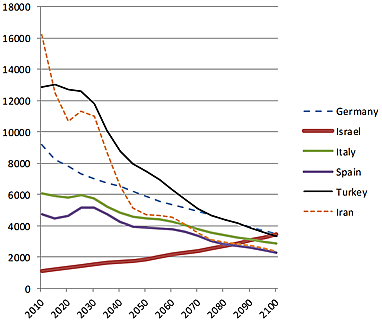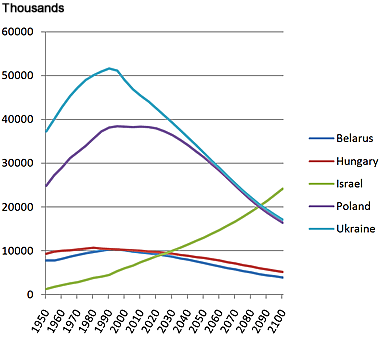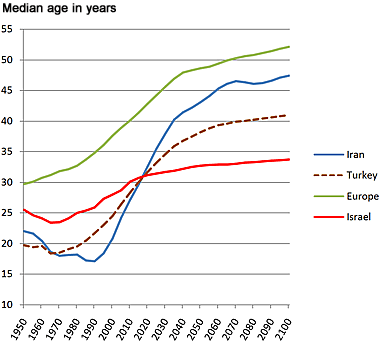
Links
Sheba Medical Centre
Melanie Phillips
Shariah Finance Watch
Australian Islamist Monitor - MultiFaith
West Australian Friends of Israel
Why Israel is at war
Lozowick Blog
NeoZionoid The NeoZionoiZeoN blog
Blank pages of the age
Silent Runnings
Jewish Issues watchdog
Discover more about Israel advocacy
Zionists the creation of Israel
Dissecting the Left
Paula says
Perspectives on Israel - Zionists
Zionism & Israel Information Center
Zionism educational seminars
Christian dhimmitude
Forum on Mideast
Israel Blog - documents terror war against Israelis
Zionism on the web
RECOMMENDED: newsback News discussion community
RSS Feed software from CarP
International law, Arab-Israeli conflict
Think-Israel
The Big Lies
Shmloozing with terrorists
IDF ON YOUTUBE
Israel's contributions to the world
MEMRI
Mark Durie Blog
The latest good news from Israel...new inventions, cures, advances.
support defenders of Israel
The Gaza War 2014
The 2014 Gaza Conflict Factual and Legal Aspects
To get maximum benefit from the ICJS website Register now. Select the topics which interest you.
UN:Israel youth population growth outstrips Turkey and Iran
Like the vanishing point in a perspective painting, long-term projections help us order our perceptions of what we see in front of us today. Here's one to think about, fresh from the just-released update of the United Nations' population forecasts: At constant fertility, Israel will have more young people by the end of this century than either Turkey or Iran, and more than German, Italy or Spain.
Population aged 15 to 24 years, Israel vs selected countries

Source: United Nations Population Division
population will rise to 24 million by the end of the present century. Iran's fertility is around 1.7 and falling, while the fertility for ethnic Turks is only 1.5 (the Kurdish minority has a fertility rate of around 4.5).
Not that the size of land armies matters much in an era of high-tech warfare, but if present trends continue, Israel will be able to field the largest land army in the Middle East. That startling data point, though, should alert analysts to a more relevant problem: among the military powers in the Middle East, Israel will be the only one with a viable population structure by the middle of this century.
That is why it is in America's interest to keep Israel as an ally. Israel is not only the strongest power in the region; in a generation or two it will be the only power in the region, the last man standing among ruined neighbors. The demographic time bomb in the region is not the Palestinian Arabs on the West Bank, as the Israeli peace party wrongly believed, but rather Israel itself.
The right way to read this projection is backwards: Israelis love children and have lots of them because they are happy, optimistic and prosperous. Most of Israel's population increase comes from so-called "secular" Israelis, who have 2.6 children on average, more than any other people in the industrial world. The ultra-Orthodox have seven or eight, bringing total fertility to three children.
Europeans, Turks and Iranians, by contrast, have very few children because they are grumpy, alienated and pessimistic. It's not so much the projection of the demographic future cranked out by the United Nations computers that counts, but rather the implicit vision of the future in the minds of today's prospective parents.
People who can't be bothered to have children presumably have a very dim view of days to come. Reams have been written, to be sure, about Europe's demographic tailspin. Less has been said about Persian pessimism and Anatolian anomie.
Paradoxically, this makes Israel's present position dangerous, for its enemies understand that they have a very brief window in which to encircle the Jewish superpower. The collapse of Egypt and possibly that of Syria shortens this window. Nothing short of American support for a unilateral declaration of a Palestinian state on the 1949 armistice lines followed by economic sanctions against Israel, though, is likely to make a difference, and this seems unlikely.
Israel already is a high-tech superpower. Israeli leads the Group of 7 industrial nations in patent applications. As Professor Reuven Brenner of McGill University wrote in the January 2010 issue of First Things:
Today Israel's venture capital industry still raises more funds than any other venue except the United States. In 2006 alone, 402 Israeli hi-tech companies raised over $1.62 billion - the highest amount in the past five years. That same year, Israel had 80 active venture capital funds and over $10 billion under management, invested in over 1,000 Israeli start-ups.
Maintaining the stunning progress of the past decade will be a challenge, because Israel's high-tech sector received a one-time boost from Russian emigration. As Brenner observes:
Of the million Russians who moved to Israel during the 1980s and 1990s, more than 55 percent had post-secondary education, and more than half held academic and managerial positions in their former country ... This made Israel the world leader in the scientist and engineer workforce, followed by the United States with 80 and Germany with 55 scientists and engineers per 10,000 members of its labor force.
Israel's prowess in the arts matches its accomplishments in technology and business. Israel has become something of a superpower in that most characteristically Western art form, classical music. In a July 21, 2010, survey of Israeli music for the webzine Tablet, I wrote, "Israelis take to classical music - the art form that most clearly creates a sense of the future - like no other people on earth, to the point that music has become part of Israel's character, an embodiment of the national genius for balancing hope and fear."
Israel has one the largest local audience for chamber music recitals of any country in the world, and its leading musicians occupy top slots around the world - for example Guy Braunstein, concertmaster (principal violin) of the Berlin Philharmonic.
This, I believe, explains the implacable hostility of Israel's neighbors, as well as the Europeans. It is the unquenchable envy of the dying towards the living. Having failed at Christianity, and afterward failed at neo-pagan nationalism, Europe has reconciled itself to a quiet passage into oblivion.
Israel's success is a horrible reminder of European failure; its bumptious nationalism grates against Europe's determination to forget its own ugly embrace of nationalism; and its implicitly religious raison d'etre provokes post-Christian rage. Above all, it offends Europe that Israel brims with life. Some of Europe's great nations may not survive the present century. At constant fertility, Israel will have more citizens than any of the Eastern European countries where large numbers of Jews resided prior to the Holocaust.
Total population, Israel vs selected Eastern European countries (constant fertility scenario)

Source: United Nations Population Division
In the constant fertility scenario, Israel will end the century at a median age of 32, while Poland will have a median age of 57. That is an inherently impossible outcome, because in that case most of Poland's population would be elderly dependents. To support them, the remaining young people would have to emigrate and work overseas (perhaps in Israel).
The Muslim world, meanwhile, is turning grey at an unprecedented rate. Turkey's and Iran's median age will surpass the 40-year mark by mid-century, assuming constant fertility, while Israel's will stabilize in the mid-30s. Europe will become an impoverished geriatric ward.
Median age in years (constant fertility assumption)

Source: United Nations Population Division
The implications of these trends have not escaped the leaders of the affected countries. "If we continue the existing trend, 2038 will mark disaster for us," Turkish President Recep Tayyip Erdogan warned in May 2010 (see The heart of TurknessAsia Times Online, March 23, 2011).
I do not know whether Erdogan chose the year 2038 by statistical projection, or whether he consulted the Muslim counterpart of Harold Camping, but it will do as well as any. Iran's President Mahmud Ahmadinejad, meanwhile, has warned repeatedly of "national extinction" if the country's low birth rate persists.
What happens to Egypt and Syria in this scenario is of small importance. Neither country will come out of the present crisis in any condition to fight, if they come out of it at all. Egypt's social structure - with two-fifths of the country immured in extreme rural poverty, and another quarter starving on thin subsidies in Cairo and Alexandria - simply is not viable.
It needed only one swift kick to shatter, and that came from the doubling of food prices. The rebellion that deposed Hosni Mubarak made things much worse; the collapse of tourism and other sources of foreign exchange, the jump in import prices, and flight capital have left Egypt without the funds to cover half its annual import bill. The country will be broke by year-end, despite US President Barack Obama's aid package (The hunger to come in Egypt Asia Times Online, May 10, 2011).
Development economists have known for years that a disaster was in the works. A 2009 World Bank report on Arab food security warned, "Arab countries are very vulnerable to fluctuations in international commodity markets because they are heavily dependent on imported food. Arab countries are the largest importers of cereal in the world. Most import at least 50 percent of the food calories they consume." The trouble is that the Arab regimes made things worse rather than better.
Egypt's rulers of the past 60 years intentionally transformed what once was the breadbasket of the Mediterranean into a starvation trap. They did so through tragedy, not oversight. Keeping a large part of one's people illiterate on subsistence farms is the surest method of social control.
Crop yields in Egypt are a fifth of the best American levels, and by design, for no Egyptian government wished to add more displaced peasants to the 17 million people now crowded into Cairo. Syrian President Basher al-Assad made a few tentative steps in this direction, and got a 100,000 landless farmers living in tent cities around Damascus (Food and Syria's failure Asia Times Online March 29, 2011).
Gamal Abdel Nasser, Anwar Sadat and Mubarak did not invent the system. Post-revolutionary Russia imprisoned its peasants on collective farms; as the Mexican historian Enrique Krauze showed (in his 1992 book TextosHereticos), post-revolutionary Mexico emulated the Stalinist model of social control and imposed its own system of collective farms during the 1930s.
Mexico eventually dumped a fifth of its population on its northern neighbor, mainly rural people from the impoverished south. The remaining Mexican poor provided an inexhaustible source of foot-soldiers for the drug cartels with which the Mexican government is fighting a low-intensity civil war.
Egypt, the most populous Arab country, postponed these problems for three generations. It is governable only by military rule, de facto or de jure, because the military is the only institution that can take peasants straight from the farm and assimilate them into a disciplined social structure.
There is no civil society underneath the military. The collapse of Mubarak's military dictatorship came about when food price inflation revealed its incapacity to meet the population's basic needs. But the collapse of military rule and the flight of the army-linked oligarchy that milked the Egyptian economy for 60 years is a near-term disaster.
In place of the orderly corruption over which Mubarak presided, there is a scramble on the part of half-organized political groups to get control of the country's shrinking supply of basic goods. Civic violence likely will claim more lives than hunger.
Refugees from Libya and Tunisia have swamped the refugee camps on the closest Italian island, and hundreds have drowned in small boats attempting to cross the Mediterranean. By the end of this year, tourists on the Greek islands may see thousands of small boats carrying hungry Egyptians seeking help. Europe's sympathy for the Arab side may vanish under an inundation of refugees.
Events are most likely to overtake diplomacy. The sort of economic and demographic imbalances implied by the projections shown above reflect back into the present. Chaos in Egypt, Syria and other Arab countries probably will pre-empt the present focus on Israel and the Palestinians. It would not be surprising if the Palestinians were to mount another Intifada, or Egypt and Syria were to initiate one last war against Israel. It might be their last opportunity.
But I rate the probably of another war at well under 50%. The internal problems of Egypt and Syria are more likely to make war too difficult to wage.
Spengler is channeled by David P Goldman. Comment on this article in Spengler's Expat Bar forum.
(Copyright 2011 Asia Times Online (Holdings) Ltd. All rights reserved. Please contact us about sales, syndication and republishing.)
# reads: 1428
Original piece is http://www.atimes.com/atimes/Middle_East/ME24Ak01.html
News
Tell us what you think
I did, in fact, misread a statement in Spengler"s article, but my error is still insignificant. Spengler wrote in the first paragraph, that with the proviso of "At constant fertility," then "Israel will have more young people by the end of this century than either Turkey or Iran, and more than German, (sic) Italy or Spain." That is, in absolute numbers. Perhaps. Within 25-30 years, large populations of youth become large populations, period, because it is the young people who produce babies, not the elderly, retired, etc. (This is how several European countries can become majority Muslim by the middle of this century.) However, some of Spengler"s assumptions here don"t jive with reality as I see it. "Israelis love children and have lots of them because they are happy, optimistic and prosperous." This sounds too candy-coated for me; I don"t buy it. Also, are the so-called Palestinians, those who believe they are living under "brutal occupation", having no children as a result? On the contrary! The population of Gaza grows in leaps and bounds and the Bedouin population in Israel will DOUBLE in the next 15 years! I would be delighted to have Spengler convince me that the future is so rosy - he just hasn"t done so, for me, at least.
Posted by Jake in J on 2011-06-06 22:20:08 GMT
I freely admit that I haven"t read this article. I just plucked a few lines out here and there and they strike me as absurd. Can Israel have a larger population at the end of the century than Germany, Italy and Turkey??? Is there enough water in Israel to support a much larger population? (Fully 10% of Israel"s electricity production today is used for pumping water. Think about that.) Will Israel, as a recognizably Jewish state even exist in 100 years? In 40 years? I am much less optimistic than Spengler on these. Also, the idea that much of Israel"s population increase comes from secular Israelis is baloney. It is the Haredi and Arab segments of the population that are growing fastest - and they are both infamously unproductive populations (not necessarily their fault, though). Also, the reliance on continued, never-ending immigration is simple-minded, at best. Demographic statistics can make for fascinating reading but don"t compare to harsh realities.
Posted by Jake in Jerusalem on 2011-06-06 13:34:55 GMT
That"s pretty good going considering there is no Jewish law against contraception. Either way, Islam encourages couples to populate Rome demands it. Amazing how politics even enter the bedroom.
Posted
by Lynne Newington on 2011-06-06 00:20:26 GMT





















